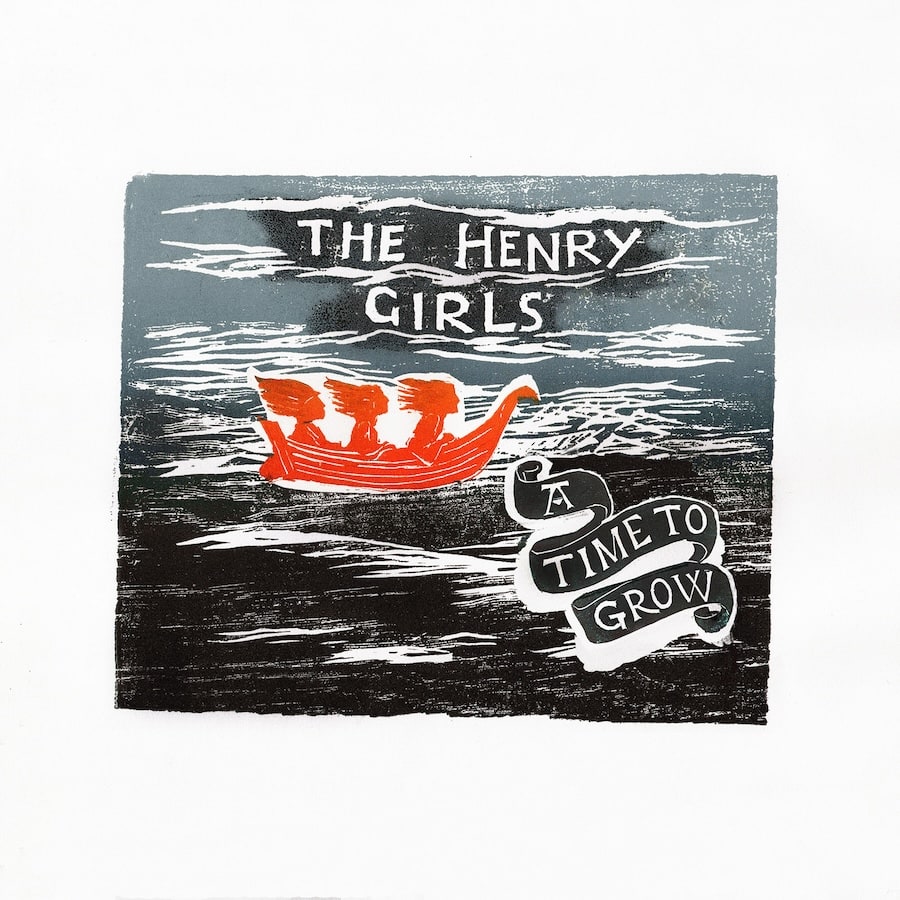
Named for their grandfather, The Henry Girls are Irish sisters Karen, Lorna and Joleen McLaughlin. They haven’t released an album since 2017 (Far Beyond the Stars), so it’s good to have them back with ‘A Time to Grow‘, a mix of new songs and instrumentals. The hypnotic title track kicks things off, initially unaccompanied three-part harmonies before drone and percussion arrive as they draw on the seasons to speak of the cycle of life (“Another dawn, another winter/In troubled dreams the darkness came/But I’ll grow tall as days grow warmer”) but also hope that all things will pass (“When oh when will this be over?/When oh when will it end?/An end to shame, an end to sorrow/And when it’s done, a time to grow”).
The dreamily Celtic folk coloured and brass-leavened Leaving Dublin, a co-write with Ry Cavanaugh, introduces the theme of leaving in order to find yourself (“This is not my home/This is not where I belong/Don’t know who I will become…My old pictures never looked right on your wall…I miss the sound of breaking waves/I feel so far away from everything I’ve ever known”) and, following the brief keyboards instrumental Clouds with its ambient voice samples, continues into the delicate, hushed and jazz-tinted Breathe with its fluidly circling harp patterns and woodwind, speaking of how “Sometimes we need darkness so that we can see the light” with its images of seeking shelter from the storm and of making hard choices in the search for better things (“Said goodbye to her family, fear in her eyes/And all that she knows is she must make this sacrifice …Whatever else happens now this journey has begun/Hope has new meaning, now she understands/The power of healing by holding someone’s hand”) and leaving the past behind.
That, in turn, is followed by the second, near six-minute harp and whistle-led instrumental Honeybee/Hard Border, the pastoral haze of the first part giving way to a jig tempo with plucked guitar and fiddle. A repeated pizzicato phrase anchors the echoey, hushed Where Are We Now as, again with jazzy undertones, it questions a relationship and an uncertain future (“Have we settled on who’s to blame/You can say the cruellest things/But I can say the same/A new year awaits/Full of promise/But where do we go from here”).
The stirring, fiddle-driven, rhythm-pulsing Not Your Fight is a collaboration with Armagh-born Ríoghnach Connolly for a number about how, again using darkness and light as imagery, conflict affects everyone and protesting otherwise is simply being blind to reality (“In the darkness/Are the exiles from the light/As the darkness starts to fall/And the day has lost its light/in the distance you will call it’s not your fight”).
The third instrumental, again edging six minutes, is the piano and violin-based Inghinidhe na hÉireann and, as the Gaelic title suggests, has a strong traditional flavour, the pace gathering into a lively romp as it progresses. Strummed on banjo, Colours In The Sky is a simple love song (“As we walk along the country road/I want to tell you something/I love you”), its retro ’40s melody and vocal styles revisited, following the brief tinkling piano ripple of Ag Taisteal and the percussive Winter’s Day’s return to new life and overcoming adversity (“There will be mountains you will have to climb/There may be shadows, but you will always find the light”), in the woodwind swaying, album-closing lullaby, Don’t Fear the Night, and it’s a final reassurance that “There will be stars above you/To guide you through with their glittering light…Birds will be singing their night song for you…Dance in your dreams till sunrise/A brand-new day will be waiting for you”.
In a world where every day seems to bring more strife and conflict, we need more albums like this to soothe our fears, calm our hearts and offer the hope that the darkness will eventually give way to the light of a new dawn.
